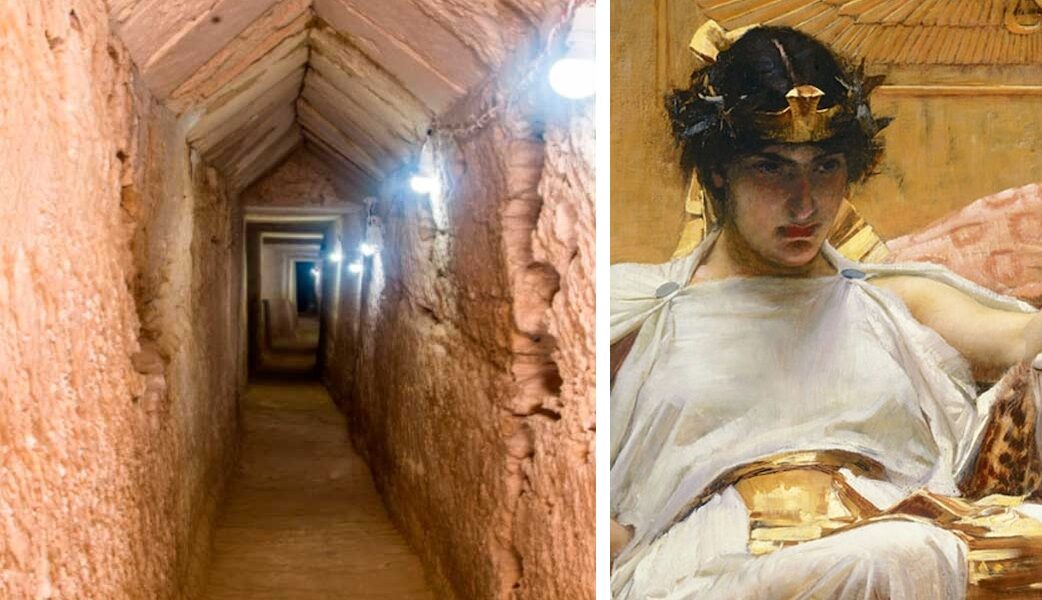Cleopatra is a figure of great interest to many people throughout history. She was a queen of Egypt who lived during the time of the Roman Empire, and her reign was marked by political intrigue, war, and love affairs that continue to capture the imagination of people today. Born in 69 BC, Cleopatra was a member of the Ptolemaic dynasty, which ruled Egypt for three centuries before being conquered by Rome.
Cleopatra was the daughter of King Ptolemy XII Auletes, who became queen of Egypt at 18, along with her brother Ptolemy XIII. However, their relationship was contentious, and they soon became embroiled in a power struggle. To gain more control, Cleopatra aligned herself with Julius Caesar, who was, at the time, the most powerful man in Rome. She famously arrived in Rome in 46 BC, and her beauty and charm won over Caesar, who became her lover and fathered a child with her.
However, Caesar's assassination in 44 BC left Cleopatra vulnerable, and she soon found herself embroiled in another power struggle, this time with Caesar's heir, Octavian (later known as Augustus).
She again used her considerable charms to gain his support, and they also became lovers. Together, they defeated Cleopatra's former ally Mark Antony in a civil war, but their relationship eventually soured, and Cleopatra took her own life rather than be taken captive by Octavian.
Cleopatra was a woman of great intelligence and cunning, fluent in several languages, including Greek, Latin, and Egyptian. She was also known for her beauty and seductive powers, which she used greatly in her dealings with powerful men. She was a political leader and a patron of the arts, and she was known for her lavish feasts and parties.
Despite her impressive achievements, Cleopatra's legacy has been somewhat tarnished by history, largely due to her negative portrayal in Roman sources.
She is depicted as a scheming, power-hungry seductress, more interested in her political ambitions than in the welfare of her people. However, recent scholarship has challenged this view, arguing that Cleopatra was a capable ruler who did much to improve the lives of her subjects.
Cleopatra's cultural identity is one of the most exciting aspects of her life. Although she was the queen of Egypt, she was of Greek descent, and her family had ruled Egypt as a Hellenistic kingdom for centuries. She was therefore steeped in Greek culture and was familiar with the works of Greek writers such as Homer, Aristotle, and Plato. However, she also took an active interest in Egyptian culture and religion, and her subjects saw her as a goddess in human form.
Cleopatra's story has inspired countless works of art and literature over the centuries, from Shakespeare's play Antony and Cleopatra to the 1963 film starring Elizabeth Taylor as Cleopatra. Her life has also been the subject of much academic study, with scholars continuing to debate her legacy and the nature of her rule.
However, one thing is clear: Cleopatra was a remarkable woman who defied convention and succeeded in a male-dominated world. Her story serves as a reminder of the power of intelligence, charisma, and determination and continues to captivate people today.



The problem isn’t a depiction of her as black, but how it is being done is appalling. Elizabeth Taylor portraying Cleopatra didn’t start off claiming that despite what anybody tells you in school– she was black. It was a movie based on her life, not a documentary series based on supposed actual African/Nubian descent. The fact that the director is manipulating to try and flip this around is unbelievable.
How about we start a new show called Freedom Fighters, a show where we have a white Rosa Parks and MLK Jr.? Why would it even matter? It’s racist for our racial identity to be depicted.